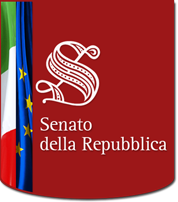Public Consultations

In Italy and around the World
From the United States, which has consulted its citizens since 1946, to New Zealand, where all parliamentary bills are open for comment by the population, the governments of a growing number of countries - including Italy - have recourse to public consultations to guide their strategies, write more effective rules, evaluate their own laws and increase democratic participation.
Beginning with OECD recommendations and EU guidelines, here are the most significant experiences.
Public consultations: the cornerstone of Open Government
What is a government's democratic performance? It is the extent to which decision-making processes match democratic principles. According to the OECD, communication, consultation and public participation are the instruments that ensure the involvement of citizens in inclusive policy making.
Le consultazioni dei cittadini e dei portatori di interesse *
Open Government, public consultations and III National Action Plan
Public Administration transparency, fighting corruption, participatory democracy: these are the three pillars of Open Government. The Public Function Department (DFP) coordinates Italy's participation in the multilateral partnership initiative and promotes the use of public consultation, whose guidelines it recently adopted.
Italy. Public consultation in 2016 and the novelties for 2017
In 2016, 22 initiatives - seven of which proposed by the ministries (five from the Finance Ministry alone, the most active so far) and 15 by other administrations - were taken. Several problems are yet to be overcome: limited participation, lack of uniformity in the use of tools and channels, insufficient attention given to the disclosing of results. The minister's directive and the opinion of the State Council.
Recenti sviluppi in materia di consultazioni dei cittadini e dei portatori di interesse *
The Better Law-making agreement: evaluating the cost of non-Europe
Improving the quality of law-making through 1) an ex ante evaluation of the impact; 2) public consultation and relevant feedback; 3) an ex post evaluation. Plus, information should be provided, when possible, about the "cost of non-Europe": namely, the cost to be borne if no action is taken on a EU level. These are the goals of the new European inter-institutional agreement of 2016.
Unione europea: il nuovo Accordo interistituzionale "Legiferare meglio" *
Impact analysis in the European decision-making process
A specialised inter-services group. An integrated evaluation model (ex ante and ex post) that envisages a list of questions to be answered. Public consultations following the results. The European Commission is the EU institution that, since 2003, has resorted most frequently to regulation impact analyses.
L'analisi d'impatto della regolamentazione nel processo decisionale europeo *





